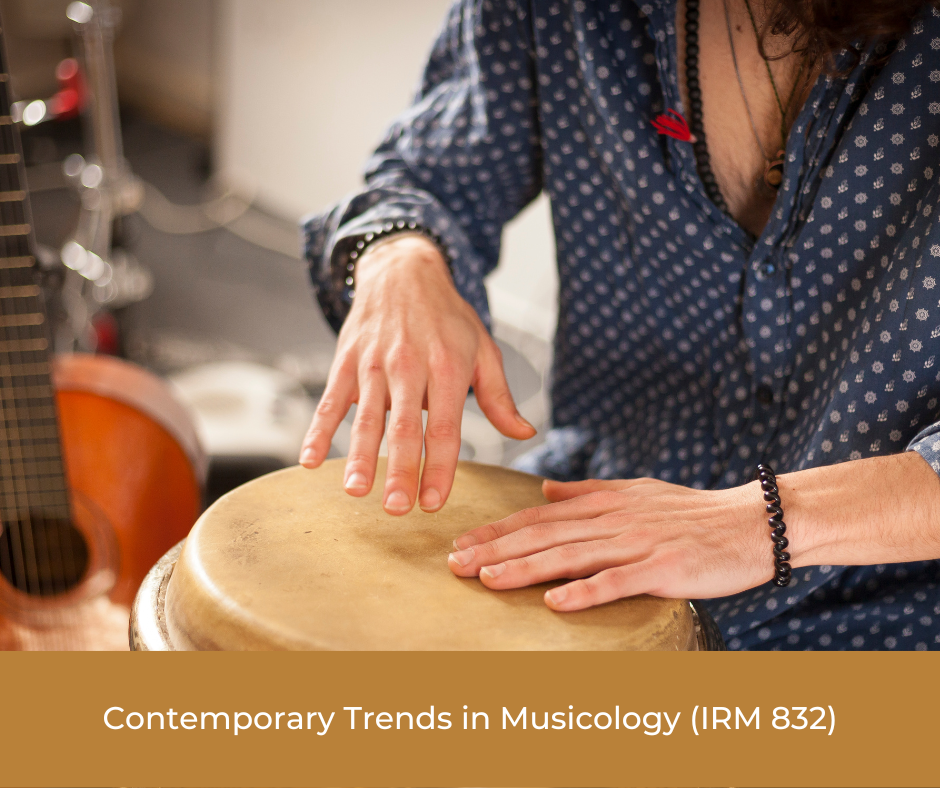Course Title: Contemporary Trends in Musicology
Course Description: The Contemporary Trends in Musicology course is an advanced exploration of current trends and debates within the field of musicology and the study of music. Students will critically engage with contemporary research, theories, and methodologies, shedding light on emerging areas of study. This course equips students with the knowledge and analytical skills needed to understand and contribute to the evolving landscape of musicological research.
Outline of Major Content Areas:
- Postcolonial Perspectives in Musicology:
- Exploring the impact of postcolonial theory on the study of music.
- Analyzing how music reflects and influences postcolonial narratives and identities.
- Gender and Music Studies:
- Investigating the role of gender and sexuality in musicology.
- Examining gender dynamics in music composition, performance, and reception.
- Digital Humanities in Music Research:
- Understanding the applications of digital humanities in the study of music.
- Learning to use digital tools for music analysis, archiving, and dissemination.
- Music and Globalization:
- Analyzing how music interacts with processes of globalization.
- Exploring how global flows of music and musicians shape cultural identities.
- Practical Projects:
- Critically analyzing and critiquing recent research papers, articles, and case studies that exemplify contemporary trends in musicology.
- Engaging in presentations and discussions on contemporary musicological topics.
Course Learning Outcomes:
Upon completion of this course, students will have achieved the following learning outcomes:
- Comprehensive Understanding: Gained a deep understanding of current trends and debates within the field of musicology.
- Critical Thinking: Developed critical thinking skills to evaluate and engage with contemporary research in musicology.
- Interdisciplinary Perspective: Recognized the interdisciplinary nature of contemporary musicological research, incorporating perspectives from postcolonial theory, gender studies, and digital humanities.
- Global Awareness: Gained insights into how music and musicological research are shaped by and contribute to global processes and cultural interactions.
- Analytical Skills: Enhanced analytical skills for assessing and critiquing recent research papers and studies within the field.
- Effective Communication: Improved communication skills through class discussions and presentations, enabling students to articulate their understanding of contemporary musicological topics.
Methods for Assessing Student Learning:
To assess student learning in the Contemporary Trends in Musicology course, a variety of evaluation methods will be employed to gauge students’ understanding and critical engagement with contemporary research in musicology:
- Critical Analysis Assignments: Students will critically analyze and evaluate recent research papers, articles, or case studies that reflect contemporary trends in musicology.
- Research Presentations: Each student will present their findings from critical analyses, facilitating in-class discussions and peer engagement on contemporary musicological topics.
- Class Participation and Discussions: Active participation in class discussions and activities related to contemporary trends in musicology, providing students with opportunities to express their understanding and insights.
- Research Paper: Submission of a research paper or project that explores a contemporary musicological topic in-depth.
- Final Assessment: A comprehensive final assessment that may include essay questions or other evaluative methods to measure the breadth of knowledge gained in the course.
By employing these diverse assessment methods, students will not only become well-versed in contemporary trends in musicology but will also develop critical thinking and analytical skills that are essential for continued scholarly engagement in the field.
